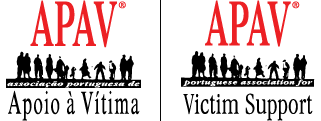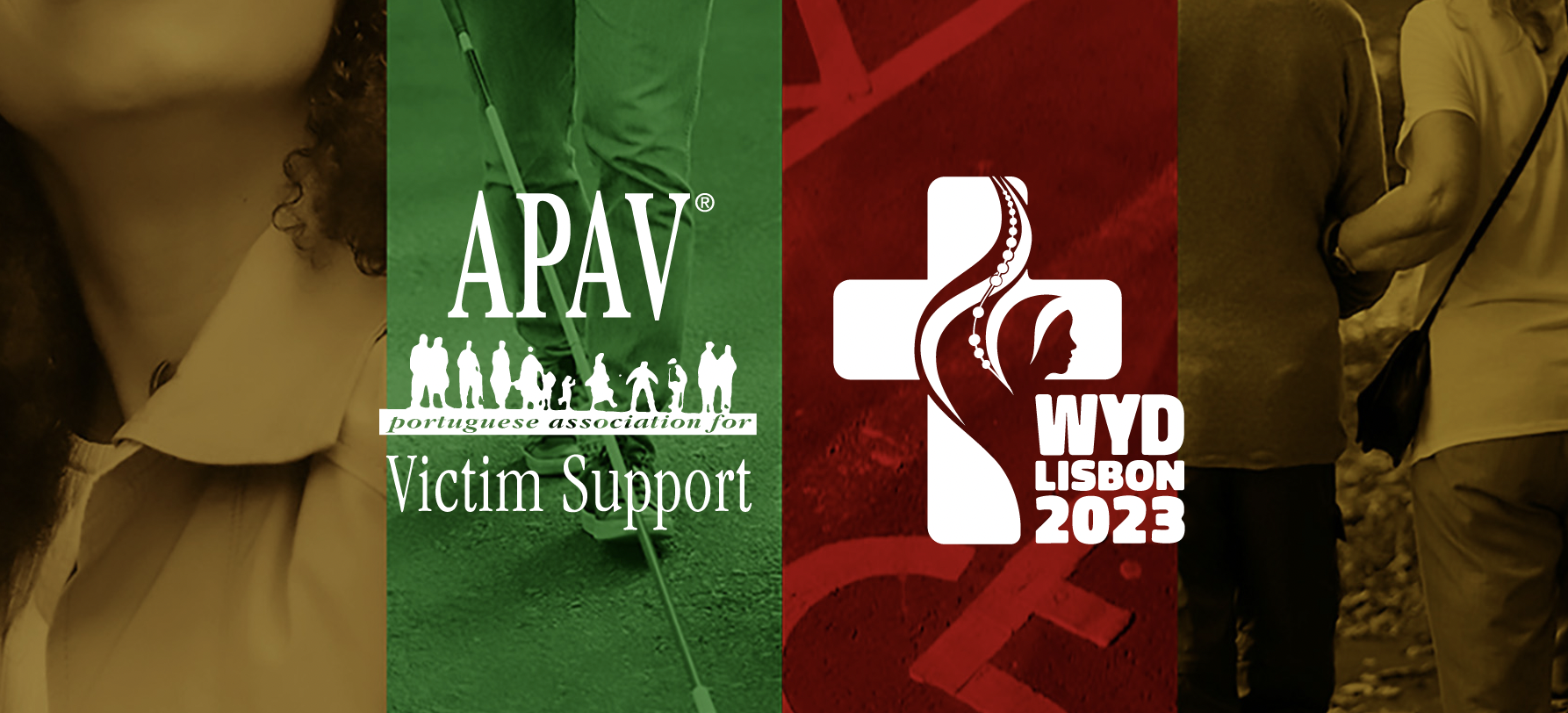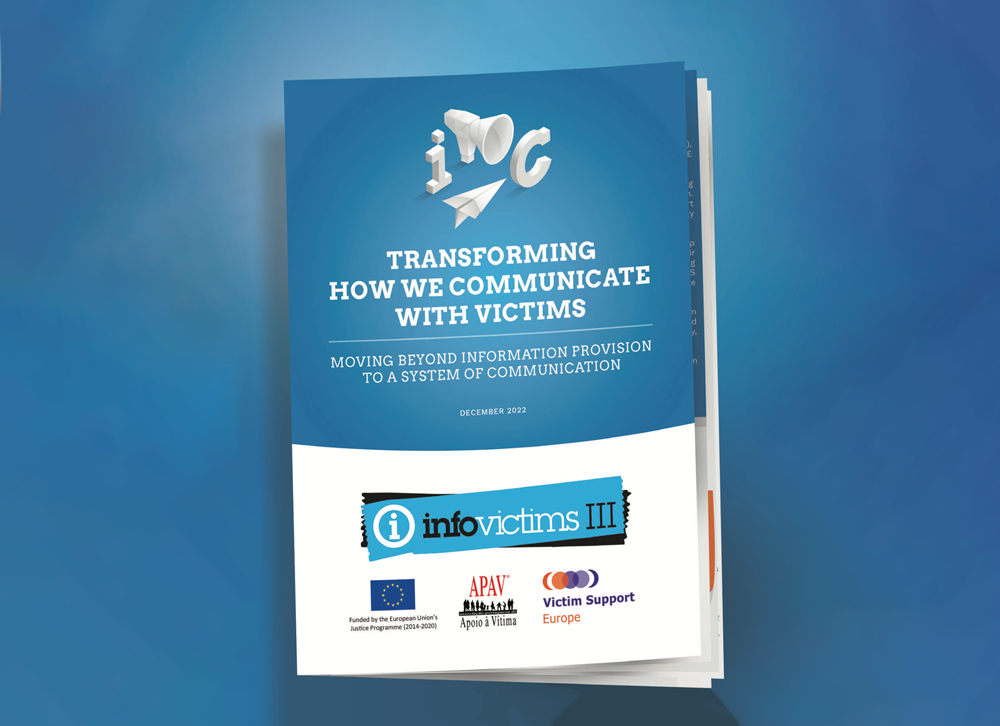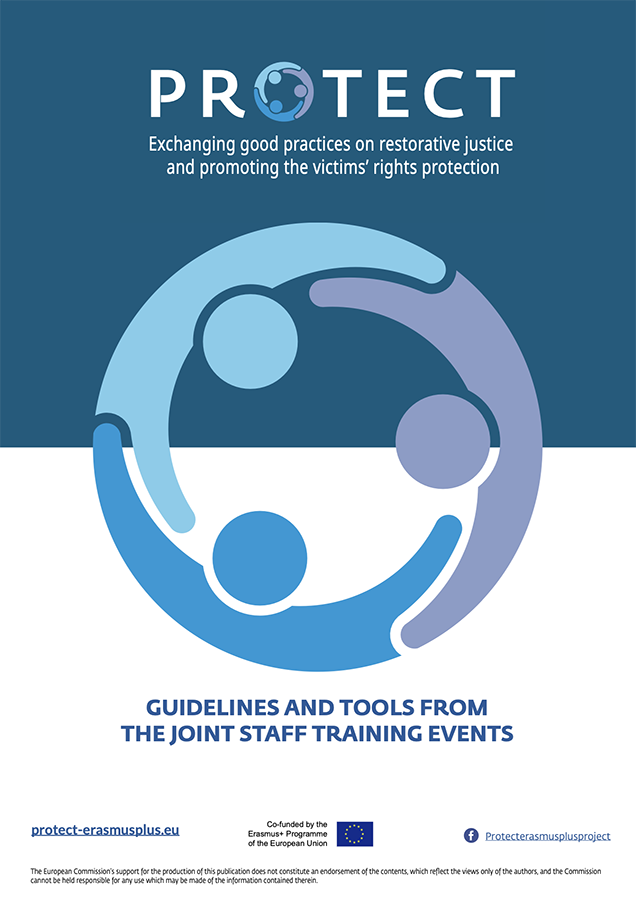
Victim Support Office (GAV) Mangualde
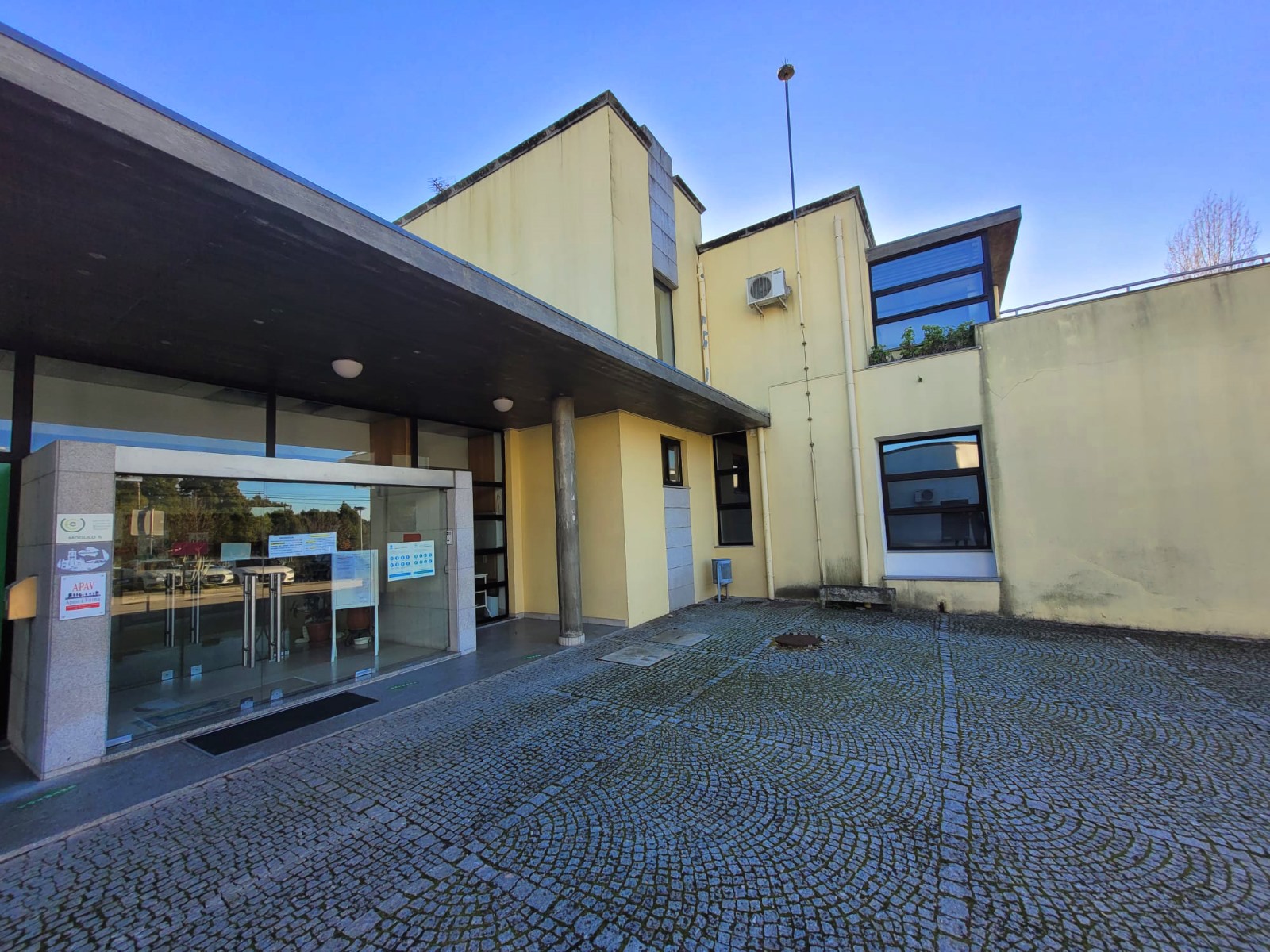

The Mangualde victim support office (GAV) is already up and runnning on a soft opening basis. GAV Mangualde is the result of the partnership with Mangualde city counsil and it is the first office to operate in the premises of a health center.
Address:
Centro de Saúde de Mangualde
Av. Dr. Jorge Coelho, nº 99, Piso 1
3534-010 Mangualde
Opening hours: business days from 9h30am to 5h30pm
232 613 412 / This email address is being protected from spambots. You need JavaScript enabled to view it.
APAV supports the WYD 2023
Within the scope of the Protocol established between APAV and the WYD Lisbon 2023 Foundation, APAV presents its action plan for the days of World Youth Day.
All the entities involved have been working hard to ensure that this event is experienced safely, peacefully and joyfully.
However, APAV's operation at this event is prepared to assist anyone who may be a victim of any situation of crime and violence, as well as to provide prevention tips for personal and property safety, acting in close cooperation with the different relevant authorities, such as Security Forces and Services, Civil Protection, Health, Justice and Diplomatic Entities.
APAV will have the following support services available, duly identified, with teams ready to talk at least in Portuguese and English - and resort to translation services if necessary:
Face-to-face
At Colina do Encontro (Eduardo VII Park, next to the Marquês de Pombal Roundabout)
July 27th to July 30th: 10am to 6pm
July 31st to August 4th: 8am to midnight
At Campo da Graça (Tejo-Trancão Park), in sectors A and D
August 05th: 8am-midnight
August 06th: midnight-6pm
The support team is available to reach other locations within the city of Lisbon, but also in Santarém and Setúbal, host dioceses of WYD Lisbon 2023.
Phone support
From July 26th to August 7th, the Victim Support Helpline - free number 116 006 - will be operating 24 hours a day.
Written Support
APAV can also be contacted by e-mail, to This email address is being protected from spambots. You need JavaScript enabled to view it..
We also highlight our new web site - apav.pt/jmj - a mobile-friendly resource, and available in the five official languages of WYD - Portuguese, English, French, Spanish and Italian. This resource aggregates information on support services, but also practical tips for the safety of people and belongings.
We wish you all a #SafeWYD!
“Transforming how we communicate with victims”: new VSE policy paper aims to strengthen victims’ access to information
Victim Support Europe’s (VSE) Executive Director Levent Altan stated that while a new policy paper, developed under the INFOVICTIMS III project which is coordinated by the Portuguese Association for Victim Support (APAV), is ‘an excellent step towards bettering the lives of victims’, attitudes must change’.
Statements from European crime victims show that many still struggle to access and receive information that is both clear to understand and adapted to their needs, whether they are looking for assistance immediately after the crime or during criminal proceedings.
“I got this letter [from the court] and I went there but I didn’t understand, so I asked. ‘You should know what you are here for. Read the letter and decide what you want to do. Whether you want to sign or not.’ And I was like, I don’t know. […] ‘You should know.’ And I signed it. [The court clerk explained] nothing, nothing, he said nothing.” (Victim, Portugal)
Victims often experience loss, injury, and trauma following a crime. However, if they are not offered information on how to access support or justice or if they are given inappropriate, inadequate or overly complex information, there is a high risk that they will experience additional distress or trauma, which may lead victims to feel excluded from the justice system.
In 2012, the EU Victims’ Rights Directive established a clear set of rights on the provision of information to victims of crime; these rights include – among others – the right to receive information about their case, and to access translation and interpretation services.
However, despite the progress made, victims still find it difficult to access or receive information they can understand and act upon. VSE’s preliminary findings from the BENEVICT project, which examined the implementation of the Victims’ Rights Directive across the 27 EU Member States, indicates that, as of 2023, “even though the obligation to provide all these instances of information is brought forth in the national legislation of almost all Member States, victims do not receive full information or receive information that is not comprehensible”.
VSE’s Levent Altan has hailed as “an excellent step” the new policy paper which offers practical guidance, to governments and stakeholders working with victims, on ensuring information is properly communicated to victims.
“Information is at the heart of both safe justice and effective support for victims of crime. It allows victims access services and legal restitution and helps prevent secondary victimisation. While some progress has been made over the recent past, we can see that current mechanisms for information provision do not work and fail to address the needs of victims. This means that a shift in how we approach and implement information rights is needed”, confessed Altan. “The challenges observed prevent victims from effectively understanding, and acting on, the information given to them. We must move beyond simply providing information, to truly communicating with victims”.
This new policy paper aims to examine these challenges and look at effective solutions. Its recommendations include the provision of guidelines, for professionals and others, on communicating with those who have fallen victim to crime; the development of practical solutions, e.g. online platforms which allow victims access information about their case; and the development of a systemic approach to information provision, through use of a communication framework.
Frederico Marques, from the Portuguese Association for Victim Support (APAV), which coordinated the INFOVICTIMS III project, said: “We must change people’s attitudes and ways of thinking. The provision of information to victims is often seen as an obligation, an administrative burden, and its impact on victims, their recovery and their participation in proceedings is often underestimated. Approaching information rights from a communications perspective allows us to focus on information being understood by the victims, information which must be processed and then used. This shift in thinking is imperative, if we want to achieve better access to support and justice systems.”
While our justice systems have taken years to evolve, criminal proceedings are still perceived as being complex and unfamiliar, often leaving victims feeling excluded from a process that impacts their lives and their experiences.
“Many things I didn’t know before, such as […] about compensation, having a look at the case file, a lawyer. So, I would have definitely wished for more information on these things.” (Victim, Germany)
To achieve effective change, information provision must be integrated within a broader communication system which focuses on how and whether information is understood, which defines what information should be shared with victims, how and by whom, which establishes quality standards as well as a framework and mechanisms to ensure its coordination.
“Many police officers, and members of other authorities working with victims, do their best to inform and support victims of crime. The problem is that the quality of the information depends on the individual delivering it, on their training, their ability to communicate and their sensitivity to victims’ issues. This results in a fragmented system which delivers inconsistent information and offers an unequal service to victims, depending on where they are or who they talk to.” admits Altan.
Altan stressed the importance of integrating a communication framework within a broader National framework for comprehensive victim support that could coordinate the actions and responses of different sectors that play a role in victims’ recovery.
He said: “Now that the paper ‘Transforming how we communicate with victims’ is published, VSE’s priority will be to make our recommendations a reality. A first step is to make sure that the European Commission publishes the revised Victims’ Rights Directive, with stronger information rights for victims and related obligations for Member States, as soon as possible.
We must work with national governments and other organisations to ensure they understand our recommendations and implement them. While alterations to the law are fundamental to life, a greater shift is needed to transform ‘on the ground’ practices and to help those implementing them; to change the lives of victims.”
Policy paper: “Transforming how we communicate with victims” ![]()
PROTECT | Guidelines and Tools from Staff Training Events
APAV shares the new Guidelines and Tools from Staff Training Events, developed by the Olga Kiseleva and Claudia Christen-Schneider, from the European Forum for Restorative Justice, under project PROTECT: Enhancing good practices on restorative justice and promoting victims' rights protection, co-funded by the Erasmus+ Programme of the European Union.
This guidelines offer professionals from victim support and restorative justice services a trauma-informed framework to the process of assessment of victims needs. Whether suffering from trauma or not, this approach may serve to create a safe space where victims find it easier to identify and express their needs.
APAV, in the quality of partner of project PROTECT, invites you to read the guidelines.
Guidelines and Tools from Staff Training Events ![]()
Joint statement by Victim Support Europe and its Members on 116 006, the European Victim Support Helpline
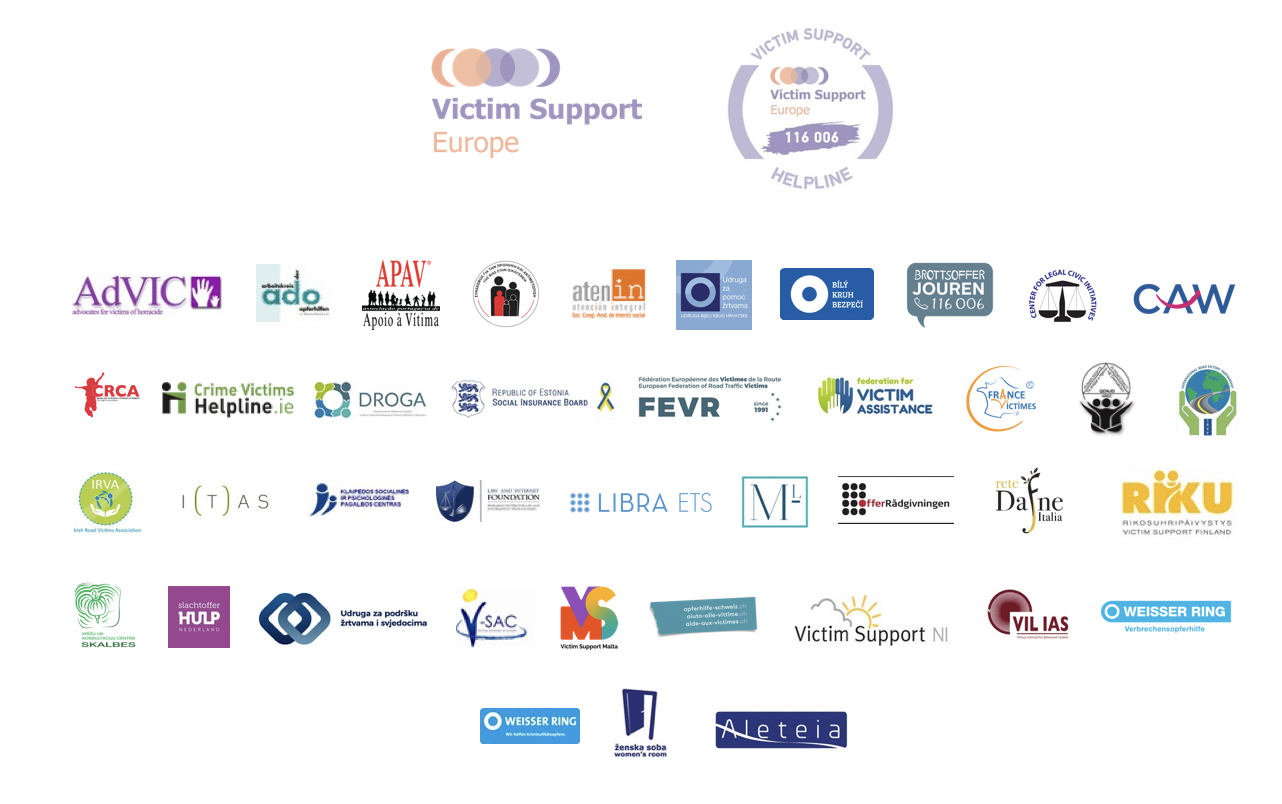
116 006 has been a dedicated European helpline for victims of crime since November 2009. However, almost 15 years later, this number is only in use in 13 countries.
We need your help – victims need your help – to ensure 116 006 is available in every EU Member State! No victim should be forgotten about or left behind. The number is easy to remember, and allows all EU citizens at home or abroad to quickly reach help after a crime.
All victims of crime must have access to this helpline; without access to 116 006, tens of thousands of victims feel alone and unheard, unable to take that first step towards recovery and justice. Where helplines are available, demand for assistance is huge: 63.330 calls in the Netherlands, 41.630 in France and 20,882 in Germany in 2022. Thanks to the trained call handlers, thousands of European citizens, who have fallen victim to crime, have been able to receive information and support when they’ve needed it most.
However, some victims have difficulty getting someone to listen to them and helpline call handlers are often the only people victims speak to after a traumatic event. Thus, 116 006 helplines, run primarily by NGOs which provide victim support services, are key to ensuring victims receive appropriate information and support, and that they are referred to the services they need most.
In 2022, EU Commissioner for Justice Didier Reynders and Eric Dupond-Moretti, Keeper of the Seals, French Minister for Justice called on all EU Member States “to make use of the 116 006 helpline for the benefit of their citizens, in the conviction that it is a necessary tool for providing information and care to victims.”.
Since then, no further 116 006 helpline have been made available in EU Member States. Neither Belgium, Bulgaria, Cyprus, Greece, Hungary, Italy, Lithuania, Luxembourg, Malta, Poland, Romania, Slovakia, Slovenia nor Spain offer their citizens a 116 006 helpline. If a missing children’s helpline – 116 000 – is available in every country, why is there not a helpline for victims of crime?
Through amendments to the EU Victims Directive, we call on the European Commission, Council and Parliament to make the 116 006 helpline a requirement in all EU States, and to support Member States through EU funding, following the approach for the missing children helplines. Proper funding for new and existing helplines is essential. Increases in helpline funding see an immediate increase in helpline use.
We call on all EU Member States to help victim support organisations to set up 116 006 helplines for all victims of crime.
Time is of the essence – 4000 homicides, around 200,000 sexual violence crimes, more than 600,000 assaults – take place each and every year, and the list of other crimes is much longer. 15% of Member State populations become victims every year: these are people you know – family, friends, colleagues.
Without your help, many victims will struggle to find support and recovery. Join us in demanding action from the EU and Member States. To fail to do so, is to fail victims.
